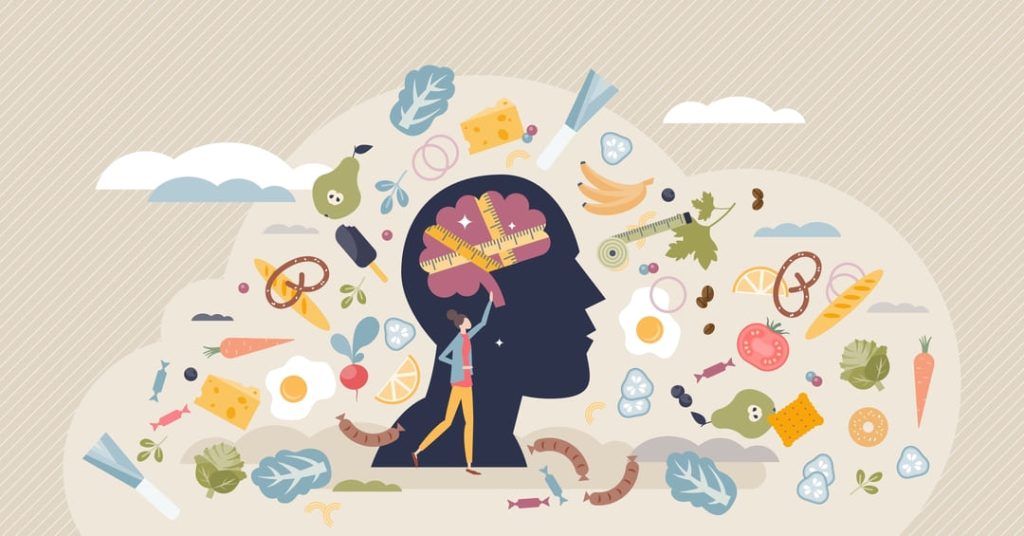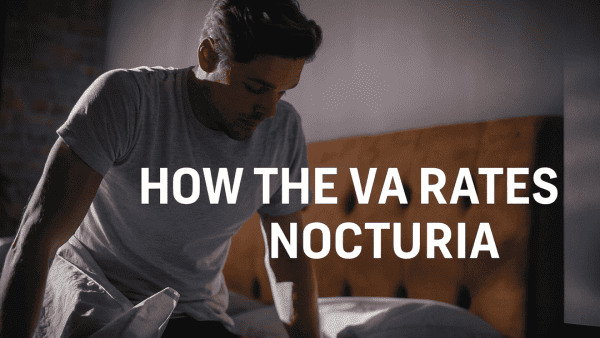Looking for Expert-Level VA Claim Answers?📱Call Us Now! 737-295-2226
Is an eating disorder a disability?
Yes! You may be eligible for an eating disorder VA rating if you can connect your condition with your time in the service.
In this post, we’ll examine the various types of eating disorders, potential VA ratings, and how to secure the compensation you deserve.
Let’s take a look.
Table of Contents

1. How to Receive an Eating Disorder VA Rating
You can receive VA disability for an eating disorder if you can prove the following:
- A current diagnosis
- An in-service event, injury, or illness
- A medical nexus (link) between the current diagnosis and the in-service event, injury, or illness.
2. How the VA Rates Eating Disorders
The VA rates eating disorders at 0%, 10%, 30%, 60%, and 100%. You can find the eating disorder VA rating under 38 CFR § 4.130, Schedule of Ratings – Mental Disorders, Rating Formula for Eating Disorders.
The VA solely includes anorexia (DC 9520) and bulimia (DC 9521) in this section, but the rating criteria remain the same for other eating disorders. In addition, the following information pertains to determining a binge eating disorder VA rating.
- 100% – self-induced weight loss to less than 80 percent of expected minimum weight, with incapacitating episodes of at least six weeks total duration per year and requiring hospitalization more than twice a year for parenteral nutrition or tube feeding
- 60% – self-induced weight loss to less than 85 percent of expected minimum weight with incapacitating episodes of six or more weeks total duration per year
- 30% – self-induced weight loss to less than 85 percent of expected minimum weight with incapacitating episodes of more than two but less than six weeks total duration per year
- 10% – binge eating followed by self-induced vomiting or other measures to prevent weight gain, or resistance to weight gain even when below expected minimum weight, with the diagnosis of an eating disorder and incapacitating episodes of up to two weeks total duration per year
- 0% – binge eating followed by self-induced vomiting or other measures to prevent weight gain, or resistance to weight gain even when below expected minimum weight, with the diagnosis of an eating disorder but without incapacitating episodes
Note: An incapacitating episode is a period during which bed rest and treatment by a physician are required.
3. Steps to Submit a VA Claim for an Eating Disorder
Before receiving an eating disorder VA rating, you must submit a claim to the VA.
Here’s a breakdown of how to submit a disability claim:
- Gather your evidence and supporting documents (i.e., VA medical records, hospital records, private medical records, Independent Medical Opinion or Nexus Letter, hospital reports, and supporting statements)
- Submit your VA Form 21-526EZ claim online, in person at your local regional VA office, or by mail to:
Department of Veterans Affairs
Claims Intake Center
PO Box 4444
Janesville, WI 53547-4444
3. Await your decision
4. If denied (or underrated), consider your options.
PRO TIP: It’s recommended that you submit an intent to file form as early as possible.
4. Common Types of Eating Disorders
Veterans exposed to trauma during military service are at an increased risk of developing an eating disorder.
While male veterans are affected by eating disorders, female veterans are more likely to develop an eating disorder.

Statistics show that eating disorders affect 9% of male and 19% of female veterans.
Eating disorders are severe conditions that could have a significant impact on your health. Therefore, seeking medical attention is essential if you think you have an eating disorder.
Anorexia Nervosa
Veterans who suffer from anorexia nervosa have a fear of gaining weight and typically have an unusually low body weight.
Side effects of anorexia include:
- Fatigue
- Dizziness or fainting
- Hair that thins, breaks, or falls out
- Abnormal blood counts
- Dry or yellowish skin
- Irregular heart rhythms
Bulimia Nervosa
Bulimia Nervosa is typically characterized by eating a large amount of food quickly and purging afterward.
Side effects of bulimia include:
- Tooth decay
- Bloody vomit
- Throat swelling
- Hemorrhoids
- Scarred hands
- Red eyes
Binge Eating Disorder
It’s common for someone with a binge eating disorder to overeat in one sitting and lack control of their eating.
Frequently, someone with a binge eating disorder feels guilty or ashamed after binging but doesn’t resort to purging.
Side effects of a binge eating disorder:
- Gastrointestinal issues
- Weight gain
- Bloating and constipation
- Cardiovascular issues
- Tiredness
5. Secondary Service Connection for Eating Disorders
The most common secondary service connection to eating disorders is Post-Traumatic Stress Disorder (PTSD).
A 2017 VA-funded study found a positive association between eating disorders and trauma exposure.
The study showed that veterans exposed to trauma were more likely to engage in disordered eating to provide short-term relief from trauma-related adverse effects.
You can file a secondary VA claim online if you feel another service-connected disability (such as PTSD) caused your eating disorder.
FAQs
What is the Body Dysmorphia VA Rating?
While you won’t find a body dysmorphia VA rating in the VA’s schedule of ratings, it is a ratable condition. The symptoms of body dysmorphia will be rated analogously based on which condition most closely matches your overall symptoms.
Are There VA Resources for Eating Disorders?
The VA offers mental health resources for veterans, including information and treatment options. You can search for the nearest local VA facility location to find resources close to you. The Veteran Crisis Line is also available 24 hours a day/7 days a week.
Do You Need a C&P Exam for an Eating Disorder VA Disability Rating?
You’ll likely be required to attend a compensation & pension (C&P) exam to qualify for an eating disorder VA rating. Your C&P exam helps determine whether your disability is service-connected, the level of your disability, or if your condition should receive an increased rating due to it worsening.
NEED MORE ASSISTANCE?
Most veterans are underrated for their disabilities and, therefore, not getting their due compensation. At VA Claims Insider, we help you understand and take control of the claims process so you can get the rating and compensation you’re owed by law. Our process takes the guesswork out of filing a VA disability claim and supports you every step of the way in building a fully-developed claim (FDC)—so you can increase your rating FAST!
If you’ve filed your VA disability claim and have been denied or have received a low rating—or you’re unsure how to get started—reach out to us! Take advantage of a VA Claim Discovery Call. Learn what you’ve been missing—so you can FINALLY get the disability rating and compensation YOU DESERVE!
Author

Kelly Olone
Kelly Olone is a military spouse who earned her degree in Psychology from Florida International University. After working in the non-profit sector for several years, she turned to her passion for writing. She aims to contribute to a better understanding of the valuable benefits that veterans deserve. As a mom, Kelly navigates the delicate balance between deadlines and bedtime stories with finesse.



